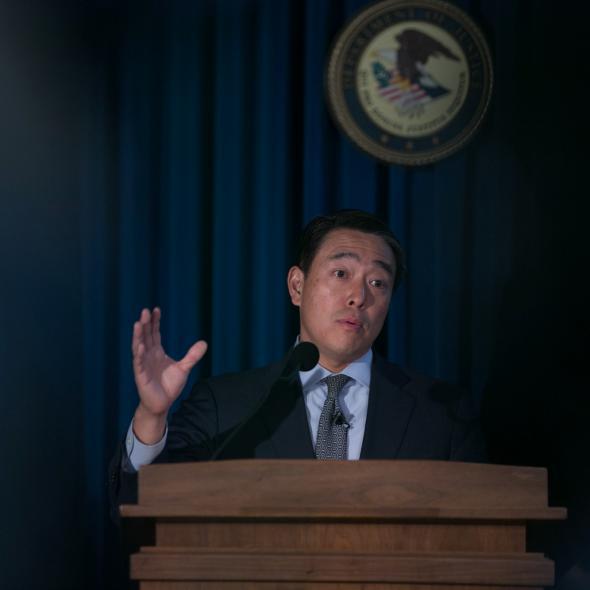In late July, HBO learned that it had been the victim of a massive cyberattack, one that left hackers in possession of approximately 1.5 terabytes of data. The perpetrators, who demanded millions in ransom, ultimately leaked much of the information they had stolen, including plot details from Game of Thrones and other internal documents. (The cache also included a full episode of Ballers, which you probably don’t watch, though we’re sure someone was disappointed.) As Slate’s April Glaser wrote in August, the event was “similar to Sony’s hack in 2014, when hackers believed to be linked to North Korea breached the media giant’s computer network.”
According to an indictment unsealed Tuesday by the United States Attorney’s Office for the Southern District of New York, the connection to state actors may have been even more apt than it first seemed, though that’s not exactly what happened here.
The indictment charges Behzad Mesri, who had, according to a press release from the U.S. attorney, “previously worked on behalf of the Iranian military” with the act. As the Washington Post notes, the indictment “does not allege he attacked HBO on behalf of the Iranian government” and seems to indicate that he was instead inspired by avarice. Nevertheless, the Post suggests that this news may have geopolitical ramifications: “The push to announce Iran-related cases has caused internal alarm, according to people familiar with the discussions, with some law enforcement officials fearing that senior Justice Department officials want to reveal the cases because the Trump administration wants Congress to impose new sanctions on Iran.”
Whatever the Justice Department’s rationale for unsealing this indictment, the U.S. Attorney’s Office may want to reconsider how it describes its role in the matter. The office’s press release indicates that “Mesri now stands charged with federal crimes,” including wire fraud, computer hacking, “interstate transmission of an extortionate communication,” and aggravated identity theft. Mesri has not been arrested at this time, but acting U.S. Attorney Joon H. Kim suggests “he will forever have to look over his shoulder until he is made to face justice.”
That’s all well and good, so long as we don’t neglect the kicker to Kim’s statement: “For hackers who test our resolve in protecting our intellectual property—even those hiding behind keyboards in countries far away—eventually, winter will come.” (My emphasis.) Let’s consider, for a moment, what’s at stake in this appropriation of the phrase “winter will come.” In the parlance of Game of Thrones, winter isn’t an ordinary season: Instead, it’s a brutally protracted, near apocalyptic event, a harbinger of collective suffering, not of dawning justice. What’s more, it’s one that—in the current chronology of the series—might well bring the arrival of the fearsome White Walkers, horrifying monsters followed by a massive army of the risen dead. If we follow this metaphor out, then, Kim seems to be claiming that the U.S. Attorney’s Office threatens to wipe out all civilization in the pursuit of an international criminal.
Mesri seems like a bad guy, and he allegedly did a lot of bad things. But, and I’m just thinking here, ending the world might be a little extreme, given the scope of the crimes in question.
